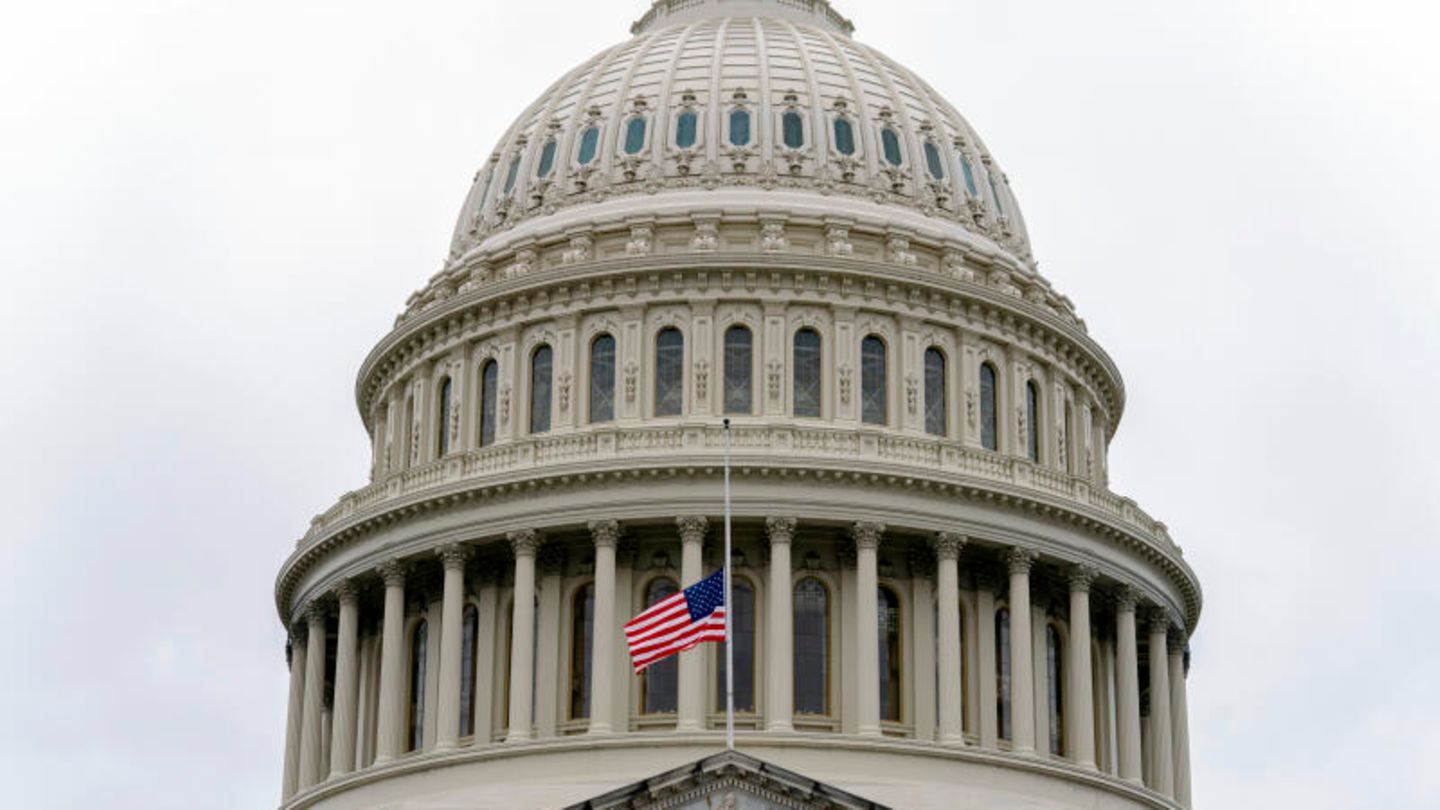The budget crisis is getting worse in Berlin. Does the traffic light coalition have to fear that government business will come to a standstill? The answer comes from a look at the Basic Law.
Table of contents
-
What is a “shutdown”?
-
How does the German budget crisis differ from the USA?
For days, Chancellor Olaf Scholz (SPD), Vice Chancellor Robert Habeck (Greens) and Finance Minister Christian Lindner (FDP) have been struggling behind closed doors to find ways out of the billion dollar hole in the country Household. Lindner puts it at 17 billion euros. Habeck, also climate protection minister, had even canceled his planned trip to the world climate conference in Dubai. If a decision is to be made before New Year’s Eve, a fundamental political decision must be made quickly, and ideally before the cabinet meeting on Wednesday so that there is still enough time for the parliamentary procedure.
It is also possible that there will be a fundamental agreement before Christmas Household but will not be passed by Parliament until the beginning of 2024. Without a fundamental political agreement before Christmas, there is a risk of a real government crisis. We know this all too well on the other side of the Atlantic. When the US government runs out of money again, the term “government shutdown” dominates the headlines – This means the standstill of government business.
Could such a scenario also threaten in Germany after the Federal Constitutional Court’s ruling? The short answer is: no.
What is a “shutdown”?
If members of Congress do not reach an agreement on the US budget, offices and authorities, among other things, will remain closed. Only essential areas such as the federal police or secret services continue to work.
How does the German budget crisis differ from the USA?
While the wrangling in the USA repeats itself every year, mainly due to party politics – most recently under President Joe Biden – Such an emergency is not possible in this country. In Germany, the Basic Law (Article 111) provides for the state to remain fully functional even if the budget law is not passed on time. This is regulated by a so-called provisional budget.
The federal government is authorized to make all expenditure necessary to maintain administration and fulfill legal obligations until the budget law is promulgated. In practice, the Federal Ministry of Finance can authorize the specialist departments to implement the budget draft that has not yet been approved up to a certain percentage as an upper limit. The US government does not have this authority in this form.
Source: Stern
I have been working in the news industry for over 6 years, first as a reporter and now as an editor. I have covered politics extensively, and my work has appeared in major newspapers and online news outlets around the world. In addition to my writing, I also contribute regularly to 24 Hours World.




